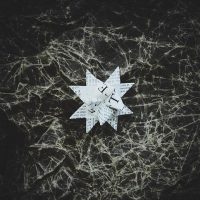
The Danish Jews have been here for almost 400 years. The first Jews arrived in 1622 and today it is estimated that only 8000 Jews live in Denmark. Most of them are located in Copenhagen, some at Fyn and a few in Jutland.
If you are a tourist – and in Copenhagen – here are a few tips to what you can see and do.
Before you dive into the different options here, let me just give you one good piece of advice. Bring your best shoes, and be ready for a memorable walk around town.
Copenhagen’s biggest asset is – apart from being old and very beautiful – that it is such a cool city to see at a slow pace.
You can easily walk around on your own, but if you want a guided tour with an English-speaking guide for 3 hours, see Jewish Tours in Copenhagen. They can arrange for tours by car as well, if needed.
If you want to blend in with the locals, another option is to rent one of the many city bikes, the town offers. For more information, see Visit Copenhagen.
The history of the Danish Jews
The Danish Jewish Museum is a must see. Experience the story of the Danish Jews from the first immigrants to the moving rescue of the Jews who fled to Sweden during The Second World War.
The museum’s broad presentation of Jewish life in Denmark is impressively presented in the architect Daniel Libeskind’s characteristic architecture – reminiscent of the famous Jewish Museum in Berlin. However this small museum is not only really intersting Jews, but also for the huge groups of architects (and students too) that come from all over the world to see this unique masterpiece. Its remarkable and creative interior design is worthwhile a visit, I promise you,.
The museum, located next to The Black Diamond and The Royal Danish Library, is usually open from 10-17 (depending on the season – closed on Mondays), and it is located on Proviantpassagen 6 – 1218 København K.
Jewish Cemeteries in Denmark
Copenhagen has two large Jewish cemeteries. The oldest “Mosaisk Nordre Kirkegaard” in Møllegade was established in 1693 and in use til 1967. “Mosaisk Vestre Kirkegaard”, established in 1886, is still in use.
Ten provincial towns have smaller Jewish cemeteries. The oldest two are located in Fredericia and in Nakskov, and are both presumed to have been established around 1700.
Other cemeteries are located in Faaborg, established in 1795, Randers in 1807, Aalborg in 1810, Assens in 1824, and Odense in 1824. Later cemeteries were established in Aarhus, Slagelse, and Horsens.
Visit the oldest cemetery in Møllegade
On the Jewish Northern Cemetery in Møllegade about 5,500 Jews from the 1600s, 1700s and 1800s lie. Rabbis, manufacturers, merchants, wholesalers, artists, scholarship founders, teachers and spouses final resting place represents a window to lives and fates that took place a long time ago in Copenhagen.
The cemetery is open to visitors from April 1st . till September 30th. all days (expect Friday and Saturday) from 10 AM – 6 PM.
Jewish Northern Cemetry is closed on Jewish holidays and from October 1st till March 31st.
The entrance is at the corner of Møllegade and Guldbergsgade, Copenhagen N.
Synagogues – open for guests
Denmark has three Jewish congregations represented in Denmark.
The Jewish Community in Denmark
The biggest, The Jewish Community in Denmark, an orthodox congregation, has its synagogue in Krystalgade. The Synagogue was built in 1833, in an “oriental” style and seats approximately 900 people. (Usually men and women are separated (men on the ground floor, woman in the gallery).
For information and visits please contact the Rabbis office: + 45 33 17 00 50 from 10AM – 1 PM Monday to Thursday or send an e-mail to sst@mosaiske.dk
If you would like to spend Sabbath with a Danish Jewish family – feel free to contact the community’s “Sabbath Hospitality Group”. Please contact mt@mosaiske.dk at least two weeks prior to your arrival.
Shir Hatzafon – Progressive Jewish Community
Shir Hatzafon meaning “The Song of the North” welcomes guests from abroad at services and for Shabbat evenings.
On Saturday morning the Shabbat Service is initiated at 10 PM and lasts around two hours. The hallmark of religious services at Shir Hatzafon is the large amount of music and song that is built into the service, in addition to the active participation of members of the congregation during the service.
Shir Hatzafons worship takes place in three languages – Hebrew, English and Danish. After the service there is a communal kiddush and vegetarian / milchik potluck lunch.
Shir Hatzafon is an egalitarian synagogue. Women and men sit together during services. Women and men also take an equal part in all worship service actions, that is led by a rabbi and accompanied by a chazzanit.
If you want to visit Shir Hatzafon, located in the eastern part of Copenhagen, send an email to progressiv@mail.dk and you will be well received and helped.
Chabad Denmark – Orthodox Jewish Community
The Chabad House in Copenhagen is open for visitors on Shabbat and on holidays. The Danish Chassidic Community is located on Ole Suhrs gade 10, Copenhagen K.
Summer mincha and candle lighting is at 7.45 PM followed by a meal at about 9. On Saturdays, after the Shabbat service (Shul) lunch is served at about 12.30 – 1 PM.
Men and woman are separated during the service. If you want to join Chabad on Shabbat or on a holiday, contact the community via. e-mail.
Hebrew letters in Copenhagen – and the story of a king
The Round Tower (Rundetårn) in Købmagergade and Holmens Kirke (the church opposite The Danish Parliament, Christiansborg) both have four distinctive Hebrew letters (JHWH– tetragrammaton for The Lord) on their buildings.
King Christian IX (1577 -1648) is (also) interesting in the context of the first immigrating Jews. He was in need of money and invited Portuguese Jews to live and dress, as they liked in Denmark. Later more Jews followed from Germany and Eastern Europe.
Eating kosher while in Copenhagen
It is not easy to buy Kosher food in Denmark. Compared to Israeli and US prices, it is not cheap either. But do not despair – here are a few tips that might work for you.
Gil’s Deli
Meat, wine, Matzos, toothpaste, salted cucumbers, Israeli salads etc. – are all available in Copenhagen Kosher – the only (sadly) kosher shop left in town (we used to have more Kosher stores) – small and delicious anyway.
The shop is located at Lyngbyvej, 87, Copenhagen Ø (the far end of Østerbro). Take bus 184 from Nørreport Station.
Open: Tuesday – Wednesday 9AM – 5.30 PM, Thursday 10 AM- 7.30, Friday 9 AM – 1 PM.
The Bagel Co
Copenhagens best bagels are in fact kosher (fabricated in a kosher bakery in Germany), although they are prepared in their stores that serve non-kosher products too.
However I love their bagels, so I have chosen to include them on my list. If you are roaming around in the center of Copenhagen, Illum is a cool place to try one The Bagel Co’s many variations.
A list of other options – in local supermarkets
Some products have a hechsher – a rabbinical product certification (a small “u” or “k” in a circle)
- Smoked salmon, any – cold smoked (if its sliced, look for cold smoked)
- Smoked salmon, Norlax
- Any Salmon, not cooked
- Canned salmon.
- Tuna fish – John west (can be bought in Føtex)
- Cereals: Havrefras, All Bran, Rice crispies, Oat meal – (in Danish – havregryn=. Kellogs cornflakes.
- Pita Bread (Super Brugsen), Jacobs’ Pita
- Bread: Schulstad ryebread (in Danish – rugbrød)
- Wasa crackers (Rågi)
- All fruits and vegetables
- Heinz ketchup
- Hellmans Mayonnaise, (available in Irma, Brugsen, Føtex, sometimes in Netto)
- Sunflour (solsikke) oil from Netto
- Odense Plain Marcipan, Anton Berg Marcipan
- Any milk, Philadelphia cream cheese. Yogurt (as long as it does not have E120)
- Vinegar derived from kosher wine or grapes (e.g. from H.J. Heinz Company, Royal Wine Company).
Otherwise – Look for non-kosher ingredients
In general, products containing ingredients derived from one or more of the following groups are not kosher:
- Animal fats and fatty acids, marine / fish oils
- Gelatin, glycerides (glycerol), stearic acid
- Rennet, casein (osteløbe)
- Tartaric acid, vinegar
- Grape juice, manufactured from non-kosher winemaker
The following E-numbers are not kosher
- E120 Carmines – only not kosher dye
- E334 tartaric
- E422 glycerol
- E445 glycerol esters
- E570 fatty acids
For more details see the (in Danish) list of kosher products in Denmark.
Danish design – Arne Jacobsens furnitures
The famous Danish architect, Arne Jacobsen (who was Jewish and fled to Sweden during World War 2), was the master of the iconic chairs, Drop, Egg and Swan chairs (among many, many other amazing designs).
Whether you want to just look at his and other designers’ artwork – or buy the actual chairs (pocket to real sized versions) visit Illums Bolighus at Strøget (the main pedestrian street running cross the center of Copenhagen).
Illums Bolighus
Amagertorv 10
Copenhagen K.
Opening hours
Monday – Thursday, 10 AM – 7 PM
Friday 10 AM – 8 PM
Saturday 10 AM – 7 PM
Sunday 11 AM – 6 PM.
Favourite shops with kitchen utensils
One of my favourite places to buy kitchen utensils and interior decoration is the shop called Skjalm P.
Apart from kitchen “stuff” they also have a beautiful section of selected affordable interior design items – simple and confident in their taste with it comes to choice of colours, patterns, materials and shapes.
Skjalm P
Nicolai Plads 9
Copenhagen K.
Opening hours
Monday – Thursday, 10 AM – 7 PM
Friday 10 AM – 7 PM
Saturday 10 AM – 16 PM
Sunday closed.
If you are looking for kitchen utensils for – I would claim – almost every possible “exercise” in your kitchen, your other choice could be the shop Kunst og Køkkentøj. They have the most “nerdy” cookbooks available and till now I haven’t been able to locate anything related to cooking they wouldn’t have in their shop.
If you want to buy though their web shop – they will get in touch with you concerning the cost for shipping. They are very helpful.
Kunst og Køkkentøj
Østergade 26
Copenhagen K.
Opening hours
Monday – Thursday, 10 AM – 6:30 PM
Friday 10 AM – 6 PM
Saturday 10 AM – 3 PM
Sunday closed.
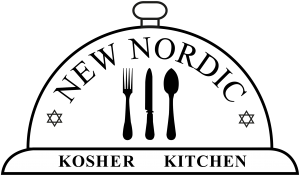
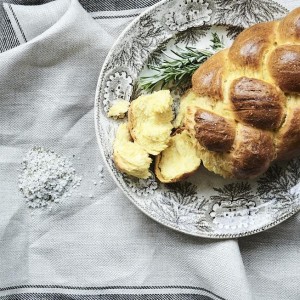
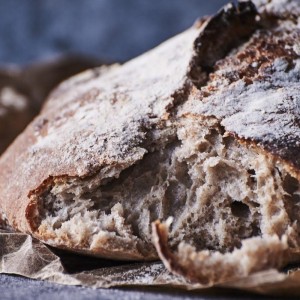


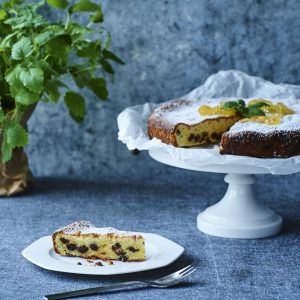
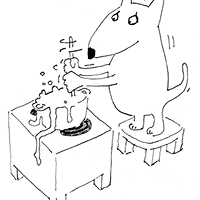
Most modern day people in Denmark buy ecological food and are vegitarians or vegis is my opinion, or at least the people I know. There is a Jewish family that originated from Italy some hundred years ago, together with Spanish Jews, when a Danish King wished fresh blood for the people in his Kingdom. This family moved to Horsens. .. Denmark is most surely a wonderful country to live in with the most beautiful Royals in the world, the people are kind, brave and loving people. High taxation has given peace, good family lives and beauty.Life also appears much easier due to the extreme taxation, yet much is far too expenisve for tourists.
All is organised to perfection, advanced medical treatment is free. How fortunate to be able to live in Denmark where natural kindness is given!